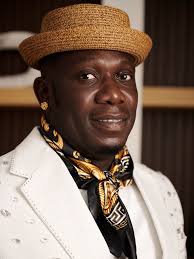Popular singer Duncan Mighty has claimed that he and other artistes from Port Harcourt played a major role in shaping today’s Afrobeats music. According to the musician, the city’s unique slang and musical sounds have been incorporated into the modern Afrobeats scene.
In a recent interview with Hip TV, Duncan Mighty explained that artists from Port Harcourt such as himself, Timaya, Burna Boy, and Omah Lay helped build the foundation of the genre. He said their music and distinctive sound influenced a generation of Afrobeats performers.
“In almost every Afrobeats song today, you can hear the Port Harcourt influence, especially the Ikwerri slang,” Duncan Mighty said. “You can’t hear any Afrobeats song today and not hear a spice of Port Harcourt. Almost every Afrobeats song today has the flavour of Port Harcourt sound. I, Burna Boy, Timaya, Omah Lay, and the Port Harcourt sound built the foundation of today’s Afrobeats.”
Duncan Mighty, whose real name is Duncan Wene Mighty Okechukwu, rose to fame in the mid-2000s with hits such as Port Harcourt Boy and Obianuju. His music has often combined local dialects with contemporary beats, helping to put Port Harcourt on the musical map of Nigeria.
The singer’s claim comes amid the ongoing global rise of Afrobeats, a genre that has become one of Nigeria’s most successful cultural exports. Stars like Burna Boy, Wizkid, and Tems have helped Afrobeats gain international recognition, with songs topping charts worldwide and collaborations with global artists.
Duncan Mighty pointed out that while Lagos has traditionally been seen as Nigeria’s music hub, Port Harcourt has made significant contributions to the sound of Afrobeats. He argued that local slang, rhythms, and lyrical style from the Niger Delta city are now embedded in mainstream Afrobeats songs.
“Port Harcourt sound is everywhere,” he said. “Even artists outside the city use the slang, the rhythm, the style. Our influence is undeniable.”
His comments sparked mixed reactions online and in the music community. While some fans agreed that Port Harcourt artists have contributed greatly to Afrobeats, others argued that he may be overstating the city’s influence.
Social media users took to Twitter and Instagram to share their views. One fan wrote: “Port Harcourt has given us Timaya, Duncan Mighty, Burna Boy, and Omah Lay, so he is right about their influence.” Another fan countered, saying, “Afrobeats is bigger than any city. Lagos, Abuja, and even international influences play a huge role. Port Harcourt is important, but not everything.”
Music historians note that Nigerian popular music has always been shaped by regional sounds. Lagos is often credited as the centre of the music industry because of its recording studios, record labels, and media presence. However, Port Harcourt, known as the Rivers State capital, has produced several prominent artistes who have successfully blended local musical traditions with modern beats.
Timaya, another Port Harcourt-born musician, rose to fame in the mid-2000s with hits such as Dem Mama and Plantain Boy. Burna Boy, also from Port Harcourt, has gained international acclaim, winning a Grammy Award in 2021 for his album Twice as Tall. Omah Lay, a younger artiste from the city, has become one of Africa’s fast-rising music stars with his distinct blend of Afrobeats and R&B influences.
According to music critics, Duncan Mighty’s claim highlights an important discussion about the contribution of regional sounds to national and global music trends. Afrobeats is a genre that draws from multiple Nigerian styles, including Fuji, Highlife, and Afrobeat, and the local dialects and rhythms of cities like Port Harcourt have played a role in shaping the music’s evolution.
“Regional influences are key to understanding the richness of Afrobeats,” said Chuka Nwafor, a Lagos-based music critic. “Artists from different cities bring their own sounds, stories, and slang to the music. Port Harcourt has been influential, and Duncan Mighty is reminding the world of that contribution.”

